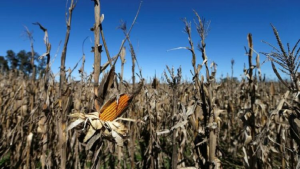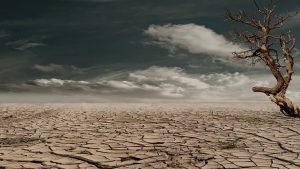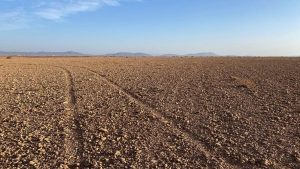Agri-SA says the agricultural sector is facing tough financial times because of the ongoing drought. It is appealing for financial aid from the public and private sectors to assist emerging and commercial farmers to ensure the country’s food security.
Farmers are planting less, livestock is dying and jobs are being lost. Agri-SA says banks are owed R180 billion and failure to pay back the money might collapse the entire system.
The federation of agricultural organisations is also calling for speedy disaster declarations in drought-stricken provinces.
Agriculture is the backbone of the country’s economy. It employs close to a million people and currently contributes 2% to the GDP. It is also the best vehicle to address poverty and stimulate the rural economy. But this is in jeopardy as the current drought is crippling the sector.
Grain farmers have not been able to plant adequately for the season because of lack of rain, making it the driest season since 2013. Grain-SA CEO, Jannie de Villiers, says the situation is worrying.
“We haven’t been able to plant because the rain is late; we are basically a whole month late. If I look at the eastern side of the country we produce about 40% of our maize in the east that is MP (Mpumalanga), KZN (KwaZulu-Natal) and the Eastern Cape. I think we are basically at the moment at 50% of the rain that we should have received thus far. Normally we get our rain on time, I think now it’s for the first time these farmers are struggling to get their stuff planted. We are very worried if we look at the forecast for the rest of the season.”
Horticulture is also feeling the brunt of the weather changes. The dry spells in the Western Cape are continuing to have an impact on trees. This has seen lower production of fruits and compromised quality of food.
“Our fruits have been either exported as fresh fruit, or as being processed food or in the juice section. We are losing export markets which is also indirectly affecting export earnings of the industry and also of our country,” says Agri-SA’s Wiehan Victor.
A large part of the country is only suitable for livestock and game farming. In these areas emerging farmers in rural areas are the most affected by the drought. Farmers are having to either sell or slaughter their livestock, affecting red meat production. Milk production is also dipping as herd sizes deteriorate.
This industry employs more than 35 000 people.
“The water from the rivers and the dams, dairy cow needs about two and a half to three litres of water per litre of milk that they produce on a daily basis, so we are looking at a cow that produces about 40 litres, will need about 120 litres a day. So you can see if a cow hasn’t got water, the milk production will also go down, and eventually the cow will die because of lack of water. Now because of all of this, more than 60% of the farmers in certain provinces indicated that they are in financial constraints and that they do consider getting out of the industry,” says Milk Producers Organisation Chris van Dijk.
Wild life is also not spared. The Northern Cape has suffered the most. Drought has caused an 80% loss of total game numbers, while 300 000 animals were lost in the Eastern Cape.
Wildlife ranchers do not qualify for aid and assistance. “Buyers’ market has dropped because people don’t have grass; they don’t have feed, so they won’t buy animals. We’ve seen hunters and tourism being negatively affected. Who wants to hunt an animal which is on its last legs, and who wants to go on a game drive seeing wild life dying?” says Wild Life Ranching SA Adri Kitshoff-Botha.
Agri SA is appealing to the public and business sector to support its Drought Disaster Fund to ensure that farmers remain in production and that jobs and food security are protected.





